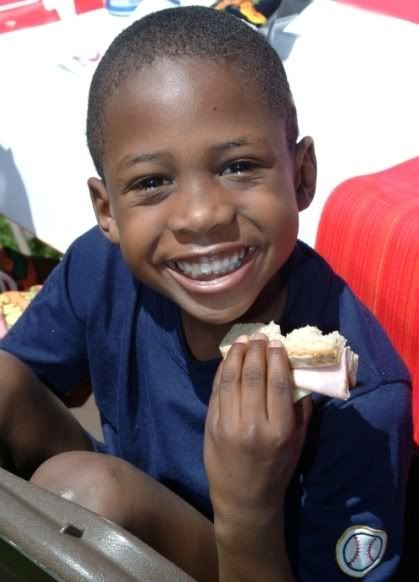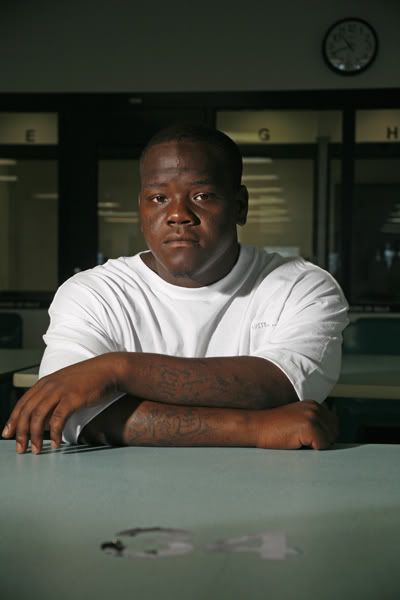This is going to be an essay about racism. So if you’d rather not read about that subject or discuss it, I’d suggest you check out the other fine essays on this blog.
It has, however, been suggested that those of us for whom this is an important topic should just move over. I wanted to share some of my personal and professional experience to explain why I won’t do that.
One of the many reasons I loved Molly Ivins is that we shared some significant things in terms of our background. Both of us were raised in East Texas. One of the first things I ever read of Molly’s was an article in Ms. Magazine about her journey out of dysfunctional conservatism (sorry, no link. I’ve looked and can’t find it online). Molly said that as a child, she was told to drink only out of the public water fountain labeled for “whites” because the one for “coloreds” was dirty. In all her childhood innocence, she noticed that the colored water fountain was actually cleaner due to lack of use. It was as a result of this kind of experience that she saw, for the first time, that she was being lied to. Recognizing racism was the beginning of opening her eyes to the way the world really works.
I had a similar experience while going to a conservative christian college with very few black students. I was blessed to be befriended by one of the only African American women attending the school. One day, as we were walking across campus, she said, “Sometimes I just get sooo tired of only seeing white faces around here.” It was like someone hit me over the head with a brick. That was the first time I caught a glimpse of what the world looks like through black eyes and I’ve been curious about it ever since. It was my journey to understand racism that eventually opened my eyes to the political and religious lies I had been told all my life.
Thirty years later, I find myself the director of a non-profit organization whose mission is “To work with families and the community to re-direct youth who are starting to get in trouble at home, at school, or with the law.” Its been interesting over the years what happens when we drill down on that mission and work to improve our efforts to fulfill what it says. Everywhere we turn, we run into racism as a contributing factor.
As an example, we work with middle schools and libraries in this community who are increasingly turning to law enforcement to deal with behavior challenges from young people. As we work with the mostly white staff in these institutions, what we find is that there are significant differences between how they react to the behavior of children of color and how they would want their own children to be treated. What is at the heart of this difference is fear. Most of us who have grown up in this culture have internalized the fear messages that are fed to us on an almost daily basis – especially about males of color.
I mentioned previously that one of our State Supreme Court Justices asked all of us to consider why a face like this provokes compassion

when all to often only a few years later it provokes fear.

I don’t have the time or the knowledge to describe how this fear gets embedded into us. But if you doubt that it does, I’d suggest a visit to Project Implicit, a Harvard study that can give you some pretty immediate feedback on the differences between what we are conscious and unconscious of in our reactions to a variety of differences. None of this is to say that those of us who harbor these fears are bad, evil or anything else. They are a direct result of growing up in this culture. It is our lack of awareness about how they impact our behavior that is the problem.
What we see as we work with schools and libraries is that staff are often afraid of and/or intimidated by the behavior of African American young people in a way that they would not be if the young person were white. So, rather than deal with it, they avoid the behavior until it escalates and then they call the police. Research has shown that the younger a person is when they have their first contact with law enforcement, the more likely they are to become engaged in ongoing criminal behavior. So this kind of reaction to African American boys is one of many reasons why they have a one in three chance of spending time in prison. The New York ACLU has begun to notice this trend and has published a report titled Criminalizing the Classroom.
This same kind of fear is something that Obama talked about in his speech about race when he relayed how hard it was for him as a young man to see it in his own grandmother. In talking about why he could not disown Reverend Wright, he says,
I can no more disown him than I can my white grandmother – a woman who helped raise me, a woman who sacrificed again and again for me, a woman who loves me as much as she loves anything in this world, but a woman who once confessed her fear of black men who passed by her on the street…
As far as I can see, it is this fear that winds up costing so many lives and dollars in the prison industrial complex…because we forget that they are all our children. But it is this same fear that Lou Dobbs exploits almost daily to scare people into thinking its ok to disregard human rights when dealing with undocumented workers. And its the same fear that Bushco exploited when 19 young Muslim men flew planes into the World Trade Center. Not only did racial profiling of brown people become standard practice (of course there were no such policies following the Oklahoma City bombing), but eventually it led to a war of aggression against “brown people” (no matter if we got the country wrong) who we had been told to be afraid of.
So yes, racism is a big issue to me. Until we begin to recognize the way we’ve been taught to fear the “other,” those fears will be exploited in ways that are unjust to the others, and eventually dangerous to us.

22 comments
Skip to comment form
Author
that the more we expose our world to others, the more our words will make sense. So, welcome to a bit of my world.
those Muslim men are caucasians, just like Bush. so not racial. ethnic or religious, perhaps.
we don’t even know the terms or how we’ve been divided.
it’s bigger than racism. and that’s the point. it’s no different for any oppressed group.
this has to be about human rights. oppressed people need to see it that way as well. . . that there is systematic oppression of ALL people.
here’s the picture. there are about 800 million people for whom the world is better. in terms of food, medicine, free time, education.
there are 6 BILLION other people for whom the world sucks… this is so much bigger than race. or gender.
it is about the life style choices of 800 million people defining life for the other 6 BILLION.
btw… you could just mention my name. i said it “move over” and i stand by it.
And I think I wrote over 1000 words about that last Friday.
I am abashed to discover I was being foolish to do so.
i’d say:
Until we begin to recognize the way we’ve been taught to fear the “other,” until we stand together
those fearswe will be divided & exploited in ways that are unjustto the others,and eventually dangerous to us.it doesn’t matter what the label is….whether is racist, religionist, genderist, nationalist, etc…. it is all to divide so that while our attention is on that they(the rich corporate in-power guys) can scoop up all the best stuff….& poison the water, air & earth on their way to profit.
yes…racist attitudes are a worthy battle. i’m glad you’re looking to that facet, kepping us aware.
Then I’ll check out the other fine essays on this blog.
I wish this was an essay about racism. It would be. Without the first two paragraphs.
were on our way to the farm market for piggie food. There was a Frito Lay truck swerving a little bit. I started singing the old Frito Bandito song, but with different words about a swerving truck. My daughter asked me if Fritos used to have a jingle. I told her yeah, and started singing it, not really thinking about the words at all. I get done and she looks at me and with a cynical look, and voice says “Geez, thats not offensive at all, is it? A hispanic theif.”
My thought then of course was: Here’s another one of the ways they’ve bred racism into us.
We grew up with it snuck in everywhere, there’s lots for us to root out.
Author
about this topic seem so difficult to have right now, I decided to let the words of my essay do my speaking this time and just listen from there.
Thanks everyone for your comments.
I’ll leave you tonight with a dance that was choreographed by Mia Michaels about two people living their lives separately and struggling to connect.
I was lucky enough to see this at the Signature Theater when it premiered. It made me cry (which I valiantly tried to hide from my friend David, who bought the tickets and took me).
A snippet from the NYT review:
One of the letters thanks Ms. Fornes for the gift of a can of (I think) string beans…and mentions how much they were grateful for the can…and its many uses…after they ate the string beans. The review does not mention this…but it’s the point at which I lost it. Something so simple…that we throw out every day…could bring so much joy.
http://theater2.nytimes.com/me…
It was one of the best Off-Broadway plays I saw. And it made me appreciate, more, what we all have–no matter how poor we are–and how abominable is our government’s policy toward Cuba.